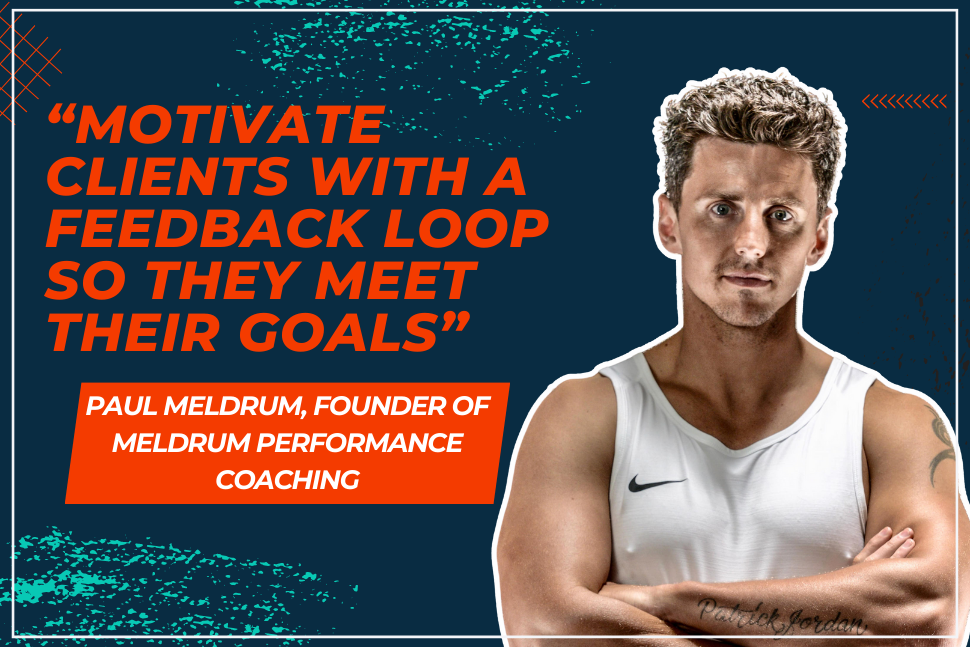
Our hero today is Paul Meldrum, founder of Meldrum Performance Coaching. Today, Paul walks us through step-by-step how you can massively increase your revenue as a trainer (or a gym owner) AND amplify your client results through a process called Client Transformation. You don't want to miss this. Without further ado, Paul Meldrum.
Client Transformation
Client transformation involves a holistic approach, focusing not just on the physical aspects but also integrating psychological and emotional dimensions.
This process guides clients towards improved fitness levels and encourages healthier lifestyle choices and mental states.
Training Principles: Customization at the Forefront
Effective client transformation begins with personalized training programs tailored to individual needs, highlighting the importance of adapting workout components to align with personal capabilities and goals.
Customizing Workout Components
- Warm-ups and Cooldowns: Tailored warm-ups prepare the body for exercise while minimizing the risk of injury. Equally, cooldowns should be personalized to help the body recover and adapt.
- Exercise Selection: Selection should consider the client's strength, mobility, and fitness goals. Engaging clients with exercises they enjoy boosts their commitment to the program.
- Progress Tracking: Regular assessments not only motivate clients by showcasing their progress but also allow trainers to adjust the program to challenge the client appropriately.
Moving Well to Move Often
Effective movement practices are essential in ensuring clients are physically prepared to engage in various activities. Utilizing movement screening tools helps in identifying any dysfunctional patterns or imbalances.
Nutrition: Beyond Calorie Counting
Nutrition strategy should focus on sustainable, enjoyable eating habits tailored to individual dietary preferences and nutritional needs, moving beyond simplistic calorie counting methods.
Implementing Effective Hydration Strategies
- Educating on Benefits: Clients should understand the importance of hydration related to energy levels, weight loss, and overall health.
- Setting Achievable Goals: Start with small increases in water intake to gradually develop this healthy habit.
Mindset: The Power of Self-Compassion
Developing a mindset geared towards self-compassion is vital in helping clients deal with setbacks and build resilience. This psychological shift is crucial for sustaining long-term lifestyle changes.
Cultivating a Positive Mindset
- Mindfulness Training: Incorporate practices that enhance awareness and present-moment focus.
- Constructive Self-Talk: Encourage clients to recognize negative self-talk and replace it with supportive and motivational dialogue.
- Building Resilience: Teach clients to view setbacks as natural components of the learning process and opportunities for growth.
The Impact of Language in Coaching
Language plays a critical role in shaping the client’s mindset. Trainers should use empowering language that promotes confidence and a positive outlook towards achieving fitness goals.
Develop a Transformative Program
Creating a comprehensive program involves integrating tailored exercises, nutritional plans, and psychological strategies effectively.
- Initial Comprehensive Assessment: Utilize both physical evaluations and psychologically oriented discussions to fully understand the client's baseline and aspirations.
- Strategic Goal Setting: Following assessments, collaboratively set realistic and measurable goals with the client, providing a clear roadmap for the training program.
- Progressive Overload Principles: Ensure that the program progressively increases in difficulty to coincide with the client’s increasing fitness level, thereby optimizing gains and maintaining engagement.
- Continuous Feedback Loop: Establish a system where clients can regularly provide feedback, which is crucial for refining and optimizing the program dynamically.
- Educational Focus: Beyond hands-on training, provide educational resources or sessions that help clients understand the reasoning behind diet choices and exercises, fostering self-sufficiency.
- Sustainability and Motivation: Regularly review and celebrate small victories and milestones to keep morale high and ensure long-term adherence.
Conclusion
Transforming clients through thoughtful, personalized fitness coaching involves more than just physical training—it requires a deep, empathic approach to their overall wellbeing. By emphasizing training, nutrition, and a healthy mindset, trainers can support clients in achieving not only their fitness goals but also a more enriched and fulfilling life.
For those in the fitness coaching field seeking to enhance their methods, engaging with seasoned experts like Paul Meldrum is invaluable. Learn more about his coaching techniques via his personal training website. This connection offers a wealth of knowledge and strategies to enrich your coaching practice, ultimately leading to greater client satisfaction and success.
Gym management software that frees up your time and helps you grow.
Simplified billing, enrollment, student management, and marketing features that help you grow your gym or martial arts school.






